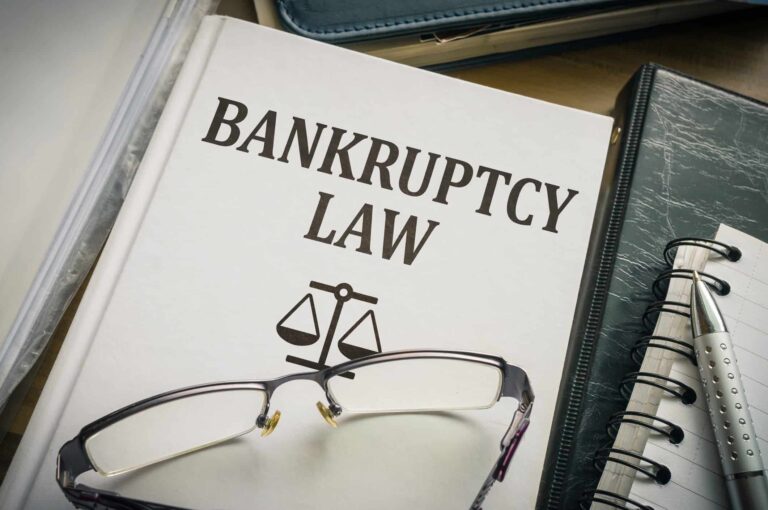Can I Get a Small Business Loan After Filing for Bankruptcy?

The answer to this question is yes. It is still possible to obtain a small business loan after filing for bankruptcy. However, it won’t be easy. Your options will be limited, and your interest rates will likely be higher. Your best option is going to be with online lenders, as bank loans and loans from credit unions are incredibly difficult to come by if you have a bankruptcy on your credit report.
Types of Bankruptcy for small businesses
Small business bankruptcy chapter 7
Chapter 7 bankruptcy does not involve a repayment plan. The trustee of the bankruptcy collects and sells the debtor’s nonexempt assets and uses the funds to pay back creditors. Part of the debtor’s property may be subject to liens and mortgages. The Bankruptcy Code does allow the debtor to keep exempt property; however, filing under chapter 7 may result in property loss. This form of bankruptcy is generally used to shut down and liquidate a business. You are still under personal obligations to repay any business debts.
Small business bankruptcy chapter 13
Chapter 13 must be filed as an individual. This form of bankruptcy is designed to allow you to keep all property and reorganize debt through payment options. It also allows other small business owners to remove personal liability for business debts.
Small Business bankruptcy chapter 11
This form of bankruptcy is slightly more complicated than the previous two mentioned. Chapter 11 allows business owners to continue operations while reorganizing debt through a repayment plan. This bankruptcy requires filing ongoing operating reports and is often more expensive than previously stated bankruptcy options.
For more answers on small business bankruptcy, contact Anthony Deluca, your trusted business bankruptcy lawyer.
Tips to Increase Your Odds
Time
Time is your friend when you have bankruptcy on your credit report. Your loan options will increase each year that passes since your bankruptcy. Take time to rebuild your credit and business. Keep debt small and make all your payments on time.
Enlist a co-signer
A good way to increase your odds of a business loan approval is with a co-signer with a clean credit report. If you do not follow through on the terms of the agreement, then your co-signer is personally liable. This allows lenders to ensure that they will be repaid either by you or your co-signer. Even if your business closes, lenders still expect to be paid. Having a co-signer brings a little extra security to the lenders.
Write a bankruptcy statement
A bankruptcy statement essentially explains to the lender why you filed for bankruptcy. To start, you want to address any extenuating circumstances that caused you to file for bankruptcy. This can include but is not limited to:
- Job loss followed by a period of unemployment
- Your business fails
- Divorce
- A period of disability
- A critical illness of yourself or a family member
Once you have explained the cause of your bankruptcy, you want to clarify that the problem has been remedied and how you did so. You want to make sure lenders know that the cause of your bankruptcy is in the past and that you are ready and able to move forward. Your current credit report should support your statements. If a lender sees that you have a history of late payments and multiple collections, this will drastically decrease your odds of approval. However, if, since filing bankruptcy, your credit report reflects on-time payments and a clean report, your chances drastically improve.
Do your research
Like with most things in life, the more knowledge you have, the better off you will be. Since most traditional business lenders will likely deny your attempt at a loan, research online lenders; they are more likely to give you approval. However, you have to be smart about it. This is where research comes in.
With the internet booming and everything being available at your fingertips, it is easier than ever to gather information. Be informed, know your options, and know your lender possibilities. Lenders need to feel confident they will be paid back. If you cannot convince them of this, then your odds of getting a loan are minimal. Do your research to learn how you can provide them some security that you will repay your debt with them.
Available small business loans

When choosing a lender, there are some things you need to consider, such as the type of loan you are trying to acquire. Are you looking for a long-term or short-term loan? Are you looking for a small business administration loan (SBA)? Are you looking for a loan for an already established business, or are you looking to start up a business?
Here are some options to consider:
- Bank loan – For this type of loan, you will typically need a credit score starting at 700. You will also need consistent records of business finances. In some instances, the bank will require collateral for security purposes.
- SBA loan – SBA loans are low-interest, long-term loans. This loan amount can range from $30,000 to $5 million with a repayment term of up to 25 years. Strong financial responsibility and multiple years in business make acquiring this loan more accessible.
- Business term loan – Business-term loans are often short-term loans with a repayment period of around three to 18 months. The loan amount is generally up to $500,000.
- Business line of credit – This form of loan is more flexible and works more like a credit card. You are not expected to make payments or charged interest until you dip into the funds. This credit line ranges from $1,000 to $250,000.
- Equipment financing – Equipment financing is an asset-based financing option. Essentially, the equipment purchased is considered collateral in itself. This loan varies; you can apply for up to 100% of the value of the equipment. After you are approved and purchase your equipment, the loan is then paid back over time, with interest.
Personal loans and business credit cards – Personal loans are beneficial if you have not been in business long. Lenders look at your personal credit rather than digging into your business history. A business credit card may be easier to obtain than a business loan. Business credit cards can also offer rewards, cash back, and travel points.

If you are considering bankruptcy, contact an attorney today. Deluca & Associates can help you with all your bankruptcy needs, including small business bankruptcy.
Reference
Greeley, R. (2021). How to Write a Bankruptcy Explanation Letter.
Kriss, R. (2022). Best Small-Business Loans of 2022.






